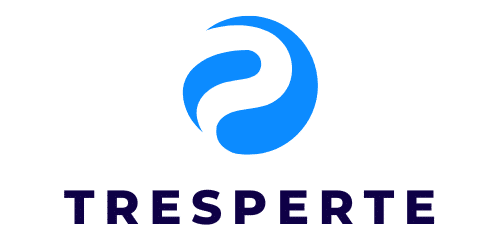What Are the Best Practices for Youth Athletic Development in Basketball?

Basketball is one of the most popular sports globally. For many young athletes, it’s a game that sparks passion, develops skills, and cultivates teamwork. However, the path to developing youth into proficient basketball players requires more than merely having them play the game. It involves proper training, well-structured practices, and an understanding of the physical and mental development associated with their age.
Harnessing the Power of Practice
Practice is the cornerstone of any sport, and basketball is no exception. Here, we’ll dive into the importance of practice in youth basketball and the best methods for conducting training sessions.
Also to read : How Is Technology Enhancing Safety in Motorsport Racing?
The Role of Practice
Practice makes perfect, as the saying goes. For young basketball players, practice is the platform where they hone their skills, understand the game, and develop their physical abilities. Coaches often use practice sessions to teach players the fundamentals of basketball, such as dribbling, shooting, and passing.
However, practice also serves a much broader purpose. It’s an avenue for personal development, where kids learn about discipline, self-confidence, and working as part of a team. Practice pushes them out of their comfort zones and challenges them to improve, fostering resilience, grit, and a growth mindset.
Also read : What Are the Ethical Implications of Genetic Testing in Sports?
Best Practice Methods
So, how can coaches design and implement effective practice sessions? First, practices should be age-appropriate. Younger kids may need more basic drills and shorter, more frequent breaks, while older players can handle more complex activities and longer periods of play.
Second, practices should be well-structured and varied. This can include a combination of individual skills drills, team tactics, and scrimmages. Regular feedback is also essential. Coaches should provide constructive criticism to help players identify areas for improvement and praise to boost their confidence.
Lastly, it’s vital that practices are fun. Keeping young athletes engaged and excited about the game will make them more likely to stick with it over time.
Development Beyond the Court
Basketball development goes beyond the skills learned on the court. In this section, we’ll look at how sports play an integral part in overall youth development.
Holistic Development: The Bigger Picture
Participation in sports like basketball offers many benefits that extend beyond physical fitness. These activities play a crucial role in holistic youth development, promoting social, emotional, and cognitive growth.
For instance, being part of a basketball team helps young players develop social skills. They learn how to communicate effectively, work collaboratively, and resolve conflicts. Additionally, the sport encourages emotional development by teaching kids how to manage success and failure, handle pressure, and maintain composure.
Moreover, basketball can aid cognitive development. Players need to make split-second decisions during a game, enhancing their problem-solving skills, concentration, and memory.
The Importance of Encouraging Participation
Encouragement from coaches, parents, and peers is crucial in retaining a child’s interest in the sport. Positive reinforcement can promote a sense of belonging, increase motivation, and cultivate a love for the game.
Young athletes should be encouraged to participate in basketball not just for competition or physical fitness, but also because of the life skills and values they can learn from the sport.
The Role of Coaches
In youth basketball development, coaches play a seminal role. They are not just instructors but mentors, role models, and motivators.
Coaching Philosophy
A coach’s philosophy is crucial in shaping the experiences of young basketball players. An effective coach understands that their role extends beyond teaching the technical aspects of the game. They are responsible for creating a supportive, inclusive, and safe environment that fosters learning and development.
Coaches should advocate for a player-centric approach, prioritizing the needs and well-being of the athletes. This philosophy emphasizes skill development, teamwork, and fun, recognizing that these are fundamental elements in ensuring a positive sports experience for kids.
Nurturing Athlete Potential
Coaches also have a critical role in nurturing the potential of young athletes. They should provide opportunities for each player to excel, regardless of their current skill level. Coaches can do this by setting realistic goals for their athletes, offering individualized feedback, and providing ample support and encouragement.
Remember, each player is unique, with their own strengths and weaknesses. Recognizing this diversity and adapting coaching strategies accordingly can significantly enhance youth basketball development.
The Impact of Age on Athletic Development
Age is a significant factor in youth athletic development. In this section, we’ll explore the influence of age on the growth of young basketball players.
Age-Appropriate Training
Understanding the physical, cognitive, and emotional development associated with different age groups is crucial for effective coaching. Age-appropriate training ensures that players are learning skills and tactics that they’re developmentally ready to handle.
For instance, younger kids may focus more on basic skills like dribbling and shooting, while older, more developed athletes might work on more complex tactics, strength training or specific positions in the game.
The Long-Term Athlete Development Model
The Long-Term Athlete Development (LTAD) model is an excellent framework that coaches can use to guide their approach. This model outlines the appropriate types of training, competition, and recovery based on a child’s developmental age rather than their chronological age.
According to the LTAD model, training in the early stages should focus on developing fundamental motor skills and fostering a love for the game. As players grow older, the focus shifts towards more specific basketball skills, and eventually, high-performance training.
In conclusion, youth athletic development in basketball is a comprehensive process that goes beyond merely playing the game. It involves age-appropriate training, proper practice methods, the nurturing role of the coach, and the recognition of sports as a tool for holistic development. In implementing these best practices, we can raise not only competent basketball players but well-rounded individuals equipped with valuable life skills.
Nutrition and Recovery in Youth Basketball
The physical demands of basketball make nutrition and recovery crucial components of youth athletic development. In this section, we’ll discuss the role of proper nutrition and recovery practices in fostering the growth of young basketball players.
The Importance of Nutrition in Youth Basketball
Nutrition plays a significant role in optimizing athletic performance and promoting overall health. Youth athletes require proper nutrition to fuel their bodies for training, facilitate recovery after practices or games, and support growth and development.
A balanced diet for young basketball players should include carbohydrates for energy, proteins for muscle growth and repair, and healthy fats for optimal body function. Fruits, vegetables, and hydrating fluids are also crucial for maintaining energy levels and preventing dehydration.
It’s critical to note that the nutritional needs of youth athletes may vary depending on their age, gender, and intensity of training. Therefore, it’s beneficial to consult a registered dietitian or nutritionist who specializes in sports nutrition to create an individualized meal plan.
Recovery Strategies for Youth Athletes
Recovery is just as crucial as training in youth basketball development. Proper recovery enables young athletes to rest, repair muscles, and prepare their bodies for future training sessions or games.
Some effective recovery strategies include adequate sleep, good nutrition, hydration, and rest days. Additionally, techniques like stretching, foam rolling, and ice baths can also aid in muscle recovery and injury prevention.
In essence, understanding and applying proper nutrition and recovery practices can significantly enhance performance and reduce injury risk. By doing so, we not only foster the physical development of young basketball players but also teach them valuable life skills, such as discipline and responsibility towards their health and well-being.
The Role of Parents in Youth Basketball Development
Parents have a pivotal role in the athletic development of their children. In this section, we’ll discuss how parents can positively influence their child’s basketball journey.
Supporting Your Child’s Athletic Development
Parents can support their child’s basketball development in multiple ways. They can provide emotional support, like encouraging their child during games and practices, and acknowledging their efforts and improvements.
Parents can also offer logistical support, such as transporting their child to practices and games, and ensuring they have the necessary equipment. Furthermore, parents can assist in maintaining their child’s nutrition and recovery practices, and ensuring their child is getting sufficient rest and sleep.
One crucial aspect to remember is that support should not equate to pressure. Parents should avoid placing excessive pressure on their child to perform, as this can lead to burnout and a decreased love for the game.
Encouraging a Positive Attitude
Parents can also play a significant role in shaping their child’s attitude towards the game. They can help foster a positive mindset by emphasizing the importance of effort, learning, and enjoyment over winning. Parents can also model good sportsmanship by demonstrating respect for coaches, referees, and other players.
In conclusion, the role of parents in youth basketball development is indispensable. They provide not only practical support but also emotional guidance, helping their child navigate the challenges and enjoy the journey of becoming an athlete.
Conclusion
Youth athletic development in basketball is a multi-faceted process, requiring an understanding of the physical, cognitive, and emotional aspects of young athletes. Implementing best practices in training, nutrition, recovery, and parent involvement can significantly enhance the development of young basketball players.
Moreover, the value of basketball extends beyond the court. It serves as a tool for holistic development, teaching young athletes crucial life skills such as teamwork, resilience, and discipline. With the right approach, we can nurture not only skilled basketball players, but also well-rounded individuals who will excel in all aspects of life.
